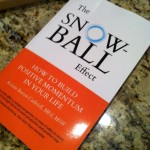 Empathy: The ability to accurately see the world through your partner’s eyes. You each wear your own set of goggles that were crafted from your DNA mixed with your past life experiences. Empathy is the ability to step outside of yourself and try to put yourself in the world of your partner. It is not about how you would feel in a certain situation, it is about how your partner feels in the situation. Empathy involves validation. It is saying, “I can see that really upsets you,” rather than judging whether your partner should or shouldn’t feel upset. Empathy is being understanding even when you really don’t understand.
Empathy: The ability to accurately see the world through your partner’s eyes. You each wear your own set of goggles that were crafted from your DNA mixed with your past life experiences. Empathy is the ability to step outside of yourself and try to put yourself in the world of your partner. It is not about how you would feel in a certain situation, it is about how your partner feels in the situation. Empathy involves validation. It is saying, “I can see that really upsets you,” rather than judging whether your partner should or shouldn’t feel upset. Empathy is being understanding even when you really don’t understand.
Humility: The ability to put aside ego and pride, drop defenses, and do what is in the best interest of the relationship rather than the best interest of the self alone. It is about dropping the need to win at the expense of your partner. It is about dropping the need to always be right. Humility is avoiding tit for tat and it includes the ability to apologize. It means that you can tell your partner that you are so sorry that they are feeling upset even when you don’t think you did anything wrong at all. When you are humble you look for win-win resolutions, and you know that going for the personal win within the relationship is really no win at all.
Compassion: The ability to extend kindness to your partner. Compassion involves showing your partner that you care on a daily basis. When you are compassionate you try to figure out what makes your partner feel loved and you go out of your way to try to speak their love language. Compassionate partners take the time to figure out what makes their partner feel safe and know that their partner’s undesirable behavior is usually the result of fear after their emotional safety needs are threatened. When undesirable behaviors do appear compassionate partners aren’t defensive. Instead they ask themselves, “I wonder how this behavior is protecting him? I wonder what spooked him?”
Equality: The ability to treat your partner as an equal, never taking a superior position within the relationship. Recognizing that although your roles may be different, one is not more important than the other. Just as the quarterback can’t throw a touchdown pass without the receiver, partners, too, are equal members on the same team.
Safety: The ability to not only recognize what makes your partner feel emotionally safe, but to be empathetic towards his or her primary safety needs. The ability to be your partner’s safe haven even when you don’t quite understand his or her fears and insecurities. True intimacy is rooted in safety. Safety involves the ability to be vulnerable. The relationship should be a place of comfort. It should be a place of unveiling. Your partner should be able to take off his or her social mask and be loved for who they truly are. Within a safe relationship abuse does not exist. Intimate disclosures are never used as a weapon. They are sacred and off-limits in any disagreement. Happy couples know that they are their partner’s safe place to fall and do not want to destroy the trust that created the safe haven in the first place.
Now it is your turn? What’s missing? I would love to hear from you.
If you are interested in building positive momentum in your life and in your relationships, you may want to check out my new book, The Snowball Effect: How to Build Positive Momentum in Your Life. It is full of touching stories and provides tools to
- let go of resentment
- let go of harsh self-judgments
- let go of explosive anger.
It will help you treat yourself and others with compassion. It is now available on Amazon and at other retail book sellers. It is available as an e-book, too.

Respect and loyalty.
Yes!
Hi Anneli,
Just testing to see if you get this comment. Comment back if you receive it. Thank you!
Thank you for sharing this, it really is good advice…